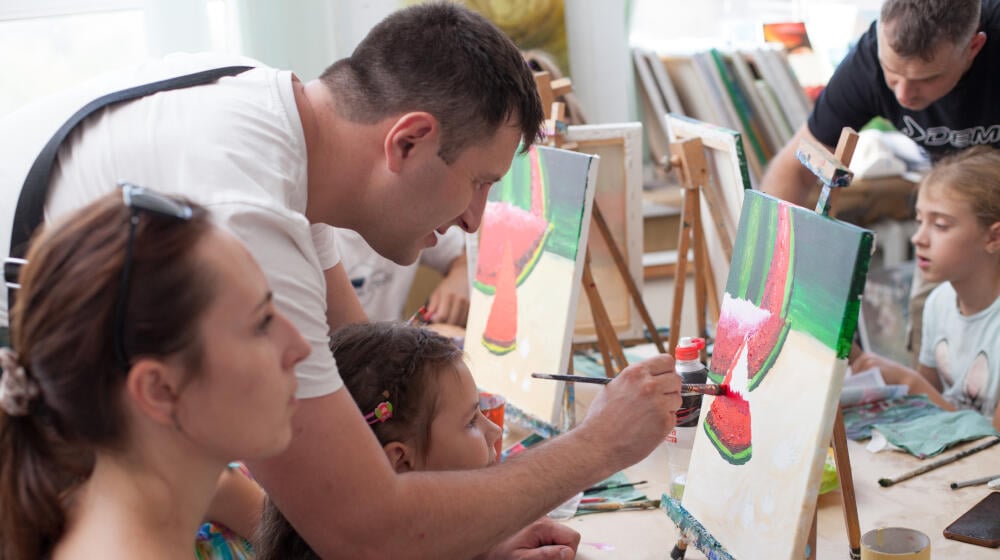The Swedish International Development Cooperation Agency (SIDA) has allocated over SEK 36 million (approx. US $3.3 million) to support the "Recovery Streams: Building up Community Resilience Based on Egalitarian Approaches" project. This funding significantly contributes to the Ukraine Demographic Resilience Strategy in the domains of human rights, healthcare, social protection, and the well-being of veterans and youth.
This initiative, rooted in UNFPA's signature solutions, seeks to foster resilience among vulnerable groups, including youth, women, men, displaced families, and veterans, through community-led, inclusive strategies.
"By investing in the well-being and empowerment of youth, women, and men, we are not only addressing immediate needs but also building stronger and egalitarian society. This initiative highlights the power of community-led efforts in driving long-term recovery and development," stated Massimo Diana, UNFPA Representative to Ukraine.
The project encompasses several key components, each tailored to address the pressing needs of Ukraine's war-affected population.
“Sweden is proud to support initiatives that build community resilience and promote equality. By focusing on the empowerment of youth, women, and men, we are helping to create a more inclusive and strong society together. This project embodies our commitment to human rights, healthcare, and well-being for all Ukrainians," stated Kasper Andersson, Chargé d’affaires of the Embassy of Sweden to Ukraine.
The “TatoHubs", community-based gender-transformative hubs, provide crucial psychological support, social adaptation assistance for displaced families, and specialized services for veterans and their families. These hubs promote responsible fatherhood and non-violent communication through engaging edutainment activities.
A comprehensive resilience programme for adolescents and youth, co-led with community-based youth centres, will include the "Resilience 2.0" and "Energy for the Future" training programmes. These initiatives aim to boost mental health and life skills, empowering young people with soft skills, assertive communication, and comprehensive sexuality education to make informed decisions even in crisis conditions.
Inclusive and gender-sensitive education methodologies will be employed to counter gender-based violence and discrimination. Educators will be trained as change agents, fostering anti-discriminatory educational environments and implementing the Strategy for Gender Equality in Education.
In response to the urgent need for sexual and reproductive health (SRH) services, the project will enhance the National SRH Hotline (3033) to provide confidential counseling and facilitate connections to local medical services. Women, including those with disabilities and older persons, will receive essential SRH services at designated Service Delivery Points (SDPs). SDPs are designed as inclusive doctor's offices and equipped to facilitate comfortable access for individuals of all backgrounds,
In response to societal challenges like the rise in gender-based violence, mental health issues, and rigid gender norms, the project seeks to develop adaptive and inclusive solutions that encourage egalitarian values and strengthen community resilience.
UNFPA Ukraine deeply appreciates the collaborative efforts that contribute significantly to the Ukraine Demographic Resilience Strategy. Together, we are making meaningful strides in the domains of human rights, healthcare, social protection, and the well-being of veterans and youth. Through these joint endeavors, we are building a stronger, more resilient future for all Ukrainians.


